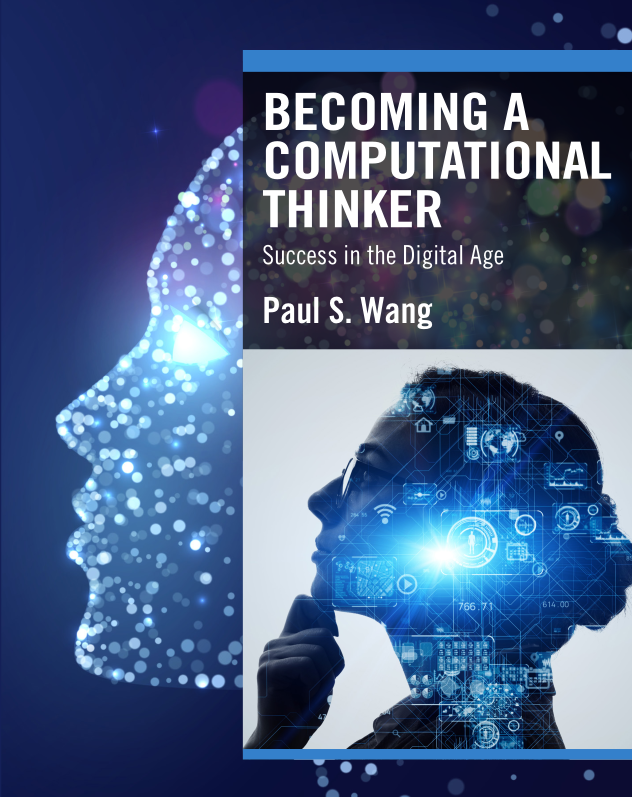 Companion Website Companion Website
Welcomes You
This site provides readers with information and resources. For example, you can access answers to the crossword puzzles, play with the interactive demos, and read additional blog posts.
This book has a single purpose: to help everyone
become a computational thinker. Computational
thinking (CT) is thinking informed by the digital age,
and a computational thinker is someone who can
apply that thinking everywhere and anywhere.
Through practical examples and easy-to-grasp
terminology, this book is a guide to navigating the
digital world and improving one’s efficiency,
productivity, and success immediately.
The table of contents and the preface can provide more information about the book. Better yet, you can read this preview:
▷ Book Preview
If you like what you see, why not get a copy?
You'll find that a good investment of your time and lots of fun too.
Your feedback will be most appreciated. Please send feedback by email to the
author directly.
Thank you again very much for your interest in this book.
How to Get a Discount
You can order from amazon.com or directly from the publisher. Also you may want to take a look at this flyer with 20% discount code for the book.
What Is Computational Thinking?
Thinking is and has always been
a mental activity informed by experience, knowledge,
and logic. Computational thinking (CT) is thinking informed by
the computing age.
Knowledge and experience of computation will enhance thinking for all people in the digital
age. And improved thinking will also lead to advances in every aspect of our lives,
including computing as well as other areas of study.
Thus, computational thinking is the mutual reinforcement of
thinking and knowledge of computation in the digital age
Specifically, CT is the mental skill and orientation to apply
fundamental concepts and reasoning, derived from modern computing and digital technologies,
in all areas, including day-to-day activities.
CT involves our understanding of computing, its advantages, limitations, and potential problems.
CT also encourages us to keep asking questions such as ``What if we automate this?''
``What instructions and precautions
would we need if we were asking young children to do this?''
``How efficient is this?'' and ``What can go wrong with this?''
CT can expand our minds, help us solve problems,
increase efficiency, avoid mistakes, and anticipate pitfalls, as well as interact and communicate better with others, people or machines.
A computational thinker is anyone who has acquired the ability to use and apply CT.
A computational thinker
can not only adapt and function well in the digital world but also take good
advantage of new technologies and even innovate and create new ways to do things.
A CTer strives to apply CT everywhere everyday.
| 
